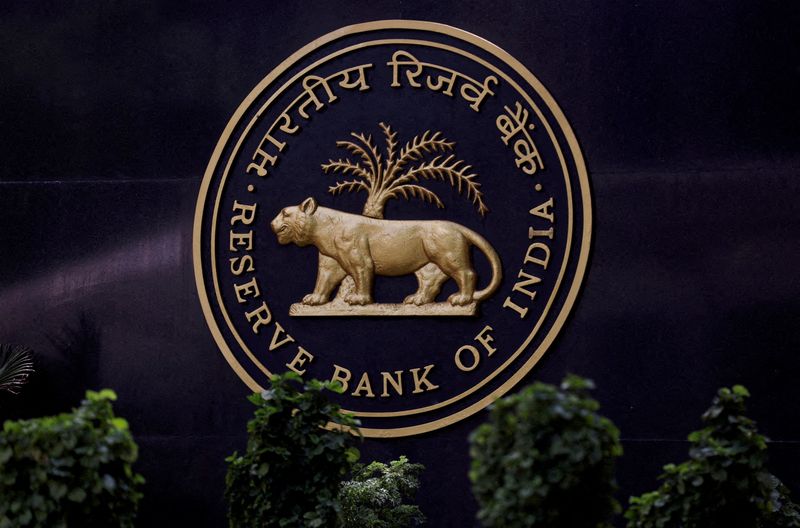By Nikunj Ohri
NEW DELHI (Reuters) – The Indian government is pushing back on two key proposals of the central bank, which will require banks to set aside more funds for infrastructure projects and hold more liquid assets against online deposits, according to a government source.
Large parts of Asia’s third-largest economy rely on bank financing with lenders’ credit growing at nearly 14% over the past year.
The Reserve Bank of India (NS:BOI) (RBI) in May proposed banks set aside 5% of the loans given to infrastructure projects that are under construction, pushing banks to approach the government on concerns over a rise in the cost of funding such projects.
Separately, the central bank proposed in July that banks should provide an additional 5% ‘run-off’ on digitally accessible retail deposits to enable them to better manage risks from heavy withdrawals through internet or mobile banking.
This would result in banks holding more liquid assets such as government bonds, reducing the funds available to lend to customers.
Both the proposals have yet to take effect.
The federal finance ministry’s banking department, on two different occasions, has written to the RBI asking the guidelines be diluted as they could “squeeze credit in the economy”, the government source said.
For the proposed project finance guidelines, the banking department has suggested the RBI take a case-by-case approach towards different sectors for deciding the quantum of funds banks set aside, based on the sector’s risk profile, according to the source.
The source did not want to be named as they are not authorised to speak to media.
The finance ministry and RBI did not immediately respond to an email seeking comment.
High-risk projects in real estate sector can have a higher 5% provisioning limit, but solar and renewable energy projects should not be mandated to provide higher provisioning, the source said, adding the government has not suggested any ceiling for the percentage of funds needed to be set aside.
The regulatory guidelines should strike a balance between credit needs of the economy and the health of the banking sector, the source said.
For online deposits, the “run-off” should be mandated only for categories of deposits that may see heavy withdrawals, and not across the board, the source said.

































